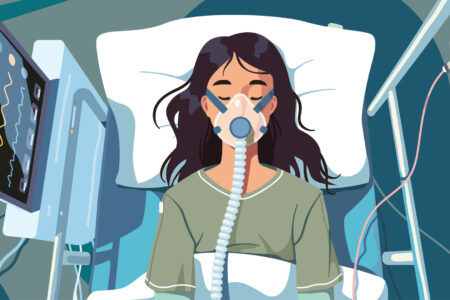
In late February, the federal government introduced Bill C-7, repealing the requirement that a patient’s natural death must be “reasonably foreseeable” to be eligible for medical assistance in dying (MAiD). The proposed legislation is promising, but further clarifications are needed in the bill. Failing to define what a reasonably foreseeable natural death entails will compound current confusion over how to interpret eligibility for MAiD, while making the proposed system of advance requests susceptible to abuse.
Bill C-7 follows the Quebec Superior Court’s Truchon decision in September 2019, which declared the federal eligibility requirement, along with the provincial “end of life” criterion, unconstitutional. What that decision failed to fully recognize – and what Bill C-7 must address – is that clinical practice has evolved in such a manner that many MAiD assessors outside Quebec do not actually treat “natural death has become reasonably foreseeable” as a strict “end of life” requirement. Outside Quebec, patients with the same medical conditions as the plaintiffs, Jean Truchon and Nicole Gladu, would have likely been deemed eligible. Indeed, Julia Lamb, the 28 year old suffering from a progressive degenerative disease who launched a Charter challenge against the federal MAiD law right after it was passed, withdrew her application in 2019 after the government’s medical expert concluded she would be eligible to receive MAiD.
Approaches to MAiD eligibility assessment vary in Canada due to many factors, including an assessor’s level of clinical experience. Defining a timeframe for “reasonably foreseeable” will help standardize clinical practice and reduce uneven application of the law. This makes sense since Bill C-7 provides access to patients who do not meet the “reasonably foreseeable” natural death criterion, subject to a minimum 90-day assessment period (unless the loss of capacity is imminent) as well as additional requirements aimed at ensuring their consent is informed.
Because introducing a 90-day waiting period could prove contentious – insufficient in some cases, where patients might benefit from a longer cooling-off period, and excessive in others where patients would already qualify under the current clinical interpretation of the law – it is incumbent on the government to clarify when it should apply.
Significantly, Bill C-7 says mental illness does not constitute a “serious and incurable illness, disease or disability,” making explicit the current exclusion of patients whose sole underlying medical condition is a mental disorder. The bill also allows patients to consent in advance to MAiD – currently prohibited by the contemporaneous consent requirement – so long as their natural death has become “reasonably foreseeable.”
By continuing to refer to a “reasonably foreseeable” natural death, the bill acknowledges that the patient’s context affects the scope and severity of the risks involved, which in turn affects what set of safeguards applies and whether patients may waive their right to give informed consent right up to the administration of MAiD.
Establishing a 12- or 18-month prognosis threshold, for example, would help MAiD assessors determine which set of procedural safeguards applies to whom. But without further definition, this criterion remains too elastic to support a responsible system of advance requests for MaiD.
Alzheimer’s patients, for instance, are already being deemed eligible for MaiD so long as they have capacity at the moment of provision. MaiD assessors may be satisfied that even where the patient has another several years to live, their natural death has become reasonably foreseeable.
Thus, Bill C-7 permits a patient who has satisfied the current criteria, and is anticipating cognitive decline, to receive MaiD after they have lost capacity, so long as they had scheduled a date for the provision with their provider.
No time limit is prescribed in the new bill, though. This needs to be fixed because nothing in the bill explicitly bars the patient and provider from arranging a provision date many years in the future. If it is going to be legal for a patient to waive the need for contemporaneous consent, there must be clear time limits on the validity of that waiver to prevent conscious patients in cognitive decline from having their lives terminated without them realizing what is happening.
The idea that the specific nature of a patient’s medical circumstances and treatment options can magnify different risks associated with MAiD informs the decision to exclude mental illness on its own from qualifying as an eligible medical condition. In the 2015 Carter case, where the Supreme Court of Canada struck down the federal prohibition on assisted suicide, the court noted that certain “cases of assistance in dying…would not fall within the parameters suggested in these reasons, such as euthanasia for…persons with psychiatric disorders.” Although denying patients whose only medical condition is a mental disorder may exclude certain individuals, the government will likely counter that this restriction is proportionate because the benefits achieved by the measure outweigh its harms. Absent such an exclusion, physicians and nurse practitioners would daily be confronted with the challenge of refusing MAiD to suffering patients for whom other courses of treatment may seem too uncertain or unreliable.
Two conflicting expert reports, one from the Halifax Group and the other from the Expert Advisory Group – both comprised, at least in part, of members of the Council of Canadian Academies Expert Panel on MaiD – disagree over the very possibility of patients with mental illness qualifying under the existing eligibility requirements (if the reasonable foreseeability of natural death criterion were removed).
This indicates that MAiD assessors would also likely differ in their evaluations of individual eligibility. Like intolerability of suffering, the condition’s incurability is a flexible, subjective criterion – one likely to collapse under a clearly suffering patient’s insistence they no longer want to live.
It is not because the intensity or duration of the patient’s suffering is any less that justifies denying MAiD to patients who would rather die than endure the ravages of their mental illness or the often intertwined social, economic and emotional burdens. Rather, it is because introducing medical assistance in dying – a one-off intervention with irreversible consequences – as a treatment option for mentally ill patients presents a greater rupture in established mental health practice than it did in the palliative care context. There, the deliberate withholding and withdrawing of medical treatment already allow death to take its natural course.
More experience with current clinical practices involving MAiD and more research are necessary before deciding whether (and if so, how) to make medically assisted death one of a suite of treatment options for mental illness. Major transformations in social attitudes, clinical practice and public expectations have occurred since Parliament legalized MAiD in 2016. However, Canadian experience and knowledge of the practice and its ramifications are still limited.
Any law that expands access to MAiD will be virtually impossible to reverse. With Bill C-7, the federal government has listened to a chorus of voices. Some see a maximally permissive MAiD regime as essential to protecting the values of equality and individual autonomy. Others express grave concerns about normalizing medical assistance in dying as a form of treatment – especially because MAiD will always be less time- and resource-intensive than the other medical treatments or social supports that help to relieve suffering.
That said, short of attaining perfect harmony – and subject to the clarifications outlined above – the new bill has the potential to strike a prudent note.
Photo: Shutterstock, by Freedom Studio.
Do you have something to say about the article you just read? Be part of the Policy Options discussion, and send in your own submission. Here is a link on how to do it. | Souhaitez-vous réagir à cet article ? Joignez-vous aux débats d’Options politiques et soumettez-nous votre texte en suivant ces directives.







